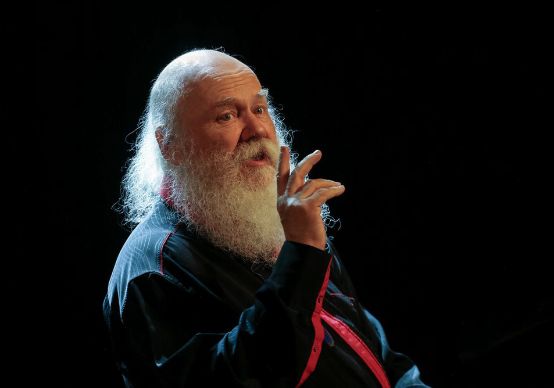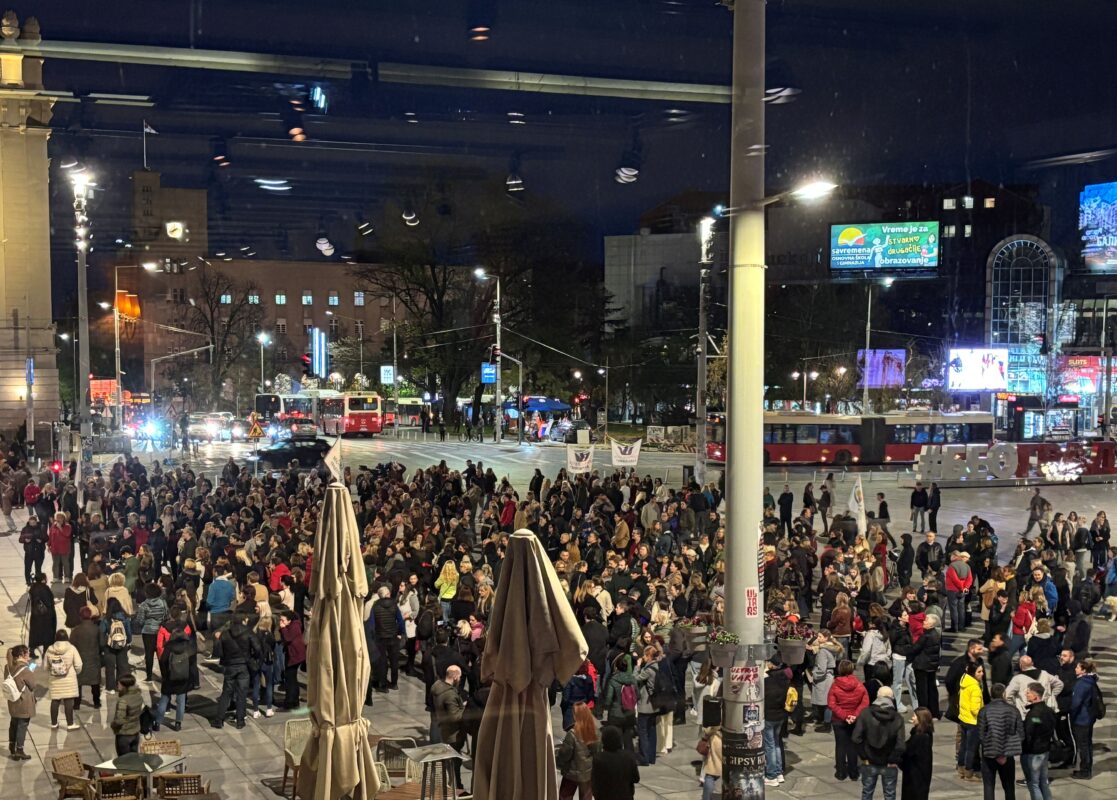A vessel to indulge in arbitrariness
With "Rezital", pianist and composer Werner Bärtschi has been giving new impetus to Zurich's concert life for 40 years. A phone call and a concert visit make it clear why the concert series is so long-lived.

"I think it's absolutely necessary for an artist, a musician, to give free rein to his creativity." A strong sentence that Werner Bärtschi utters on the telephone on the occasion of the anniversary of his concert series "Rezital". And central, as the desire for unconditional artistic freedom was at its cradle. Equipped with sufficient self-confidence thanks to national and international successes, he took the step 40 years ago to create his own platform. A place where he can do whatever he considers artistically right without having to justify it. Not in front of organizers, and not in front of his own past.
So it's a concept that can't really be described as such. It could rather be called the decision to trust and follow one's instincts. But one that definitely works, as you can see from the long existence of the series. A non-concept that has allowed Rezital to become a small institution in Zurich. This can be seen from the fact that the city of Zurich provides the series with a small but fixed annual grant. A rare honor that is otherwise only granted to institutions such as the Tonhalle or the Collegium Novum.
And a non-concept that gave Zurich some memorable moments. For me, Karlheinz Stockhausen's visit to the recital and the performance of Moments among the most impressive concert experiences of my life. Werner Bärtschi himself doesn't like to emphasize any highlights, because "what counts in the end is a successful concert", and that could also be a simple piano recital with Schubert. But when asked, he does mention the Cage-Satie Festival or his four years of intensive study of Carl Philipp Emanuel Bach.
This is certainly a constant in Bärtschi's work as an interpreter. Time and again, he has championed the works of unknown composers. He promoted Erik Satie, for example, even before he mutated into a now popular eccentric. However, it is never about being original. The engagements stem from the conviction that this is good music. And the desire to play this music. However, he does not want to be an "expert on the unknown", as he has played Beethoven and Chopin most often. The classics of piano music par excellence.
The art of programming
All of this was once again impressively demonstrated in the concert on December 1. And even though it was not the anniversary concert that should have taken place on October 30, exactly 40 years and one day after the first recital, the second concert of the season was still a worthy anniversary event. This is because it brought together a number of things that are typical of recitals. It was the prelude to a series of concerts dedicated to the composer César Franck. While it is already unusual to hear a piece by Franck in concert in this country, a whole series of concerts is all the more surprising. But Bärtschi explains the unusual program idea succinctly by stating that he simply considers Franck to be one of the very great composers. He then adds that he admires "how César Franck draws listeners and performers into a stream of passion". All great music captivates you, of course, but "with Franck it comes closer". That was not too much of a promise, because the Piano Quintet in F minor played on this Tuesday evening actually proved to be a work that stands out for its passion. Even the slow movement, which begins in a relaxed manner, spirals upwards to a gripping intensity.
The thoughtful way in which Bärtschi conceives his programs was demonstrated by the way he combined the Franck that concludes the concert. In the first part, Beethoven's String Quartet op. 95, also in F minor, was combined with Anton Webern's Six bagatelles op. 9 for string quartet. And in such a way that the Webern pieces were played twice, before and after Beethoven. In this way, Webern became an ear-opener for Beethoven - and vice versa. The astonishing thing was that Webern's "modern" music seemed more romantic than Beethoven's in this constellation. The interpretation certainly contributed to this impression. The Merel Quartet played Beethoven in a modern way, with accentuated contrasts, which seemed all the more radical because the more delicate, emotional passages were played in a silvery rather than warm manner. The avant-gardist Beethoven was highlighted here, through interpretation and program design.
Arbitrariness should therefore not be confused with incoherence. This is also reflected in the program of the anniversary concert, which has been postponed to 11 June 2021: 40 miniatures from 400 years, one piece from each decade. At first glance, a crazy idea for the moment. But on closer inspection, someone is being serious here with a twinkle in their eye, where other organizers are merely making assertions: The audience is taken on a journey through 400 years of music history.
Forty years of recital
New date: Friday June 11, 2021, 6.30 pm - Zurich Conservatory
An anniversary concert with 40 miniatures from 400 years with Werner Bärtschi, piano
https://wernerbaertschi.ch








